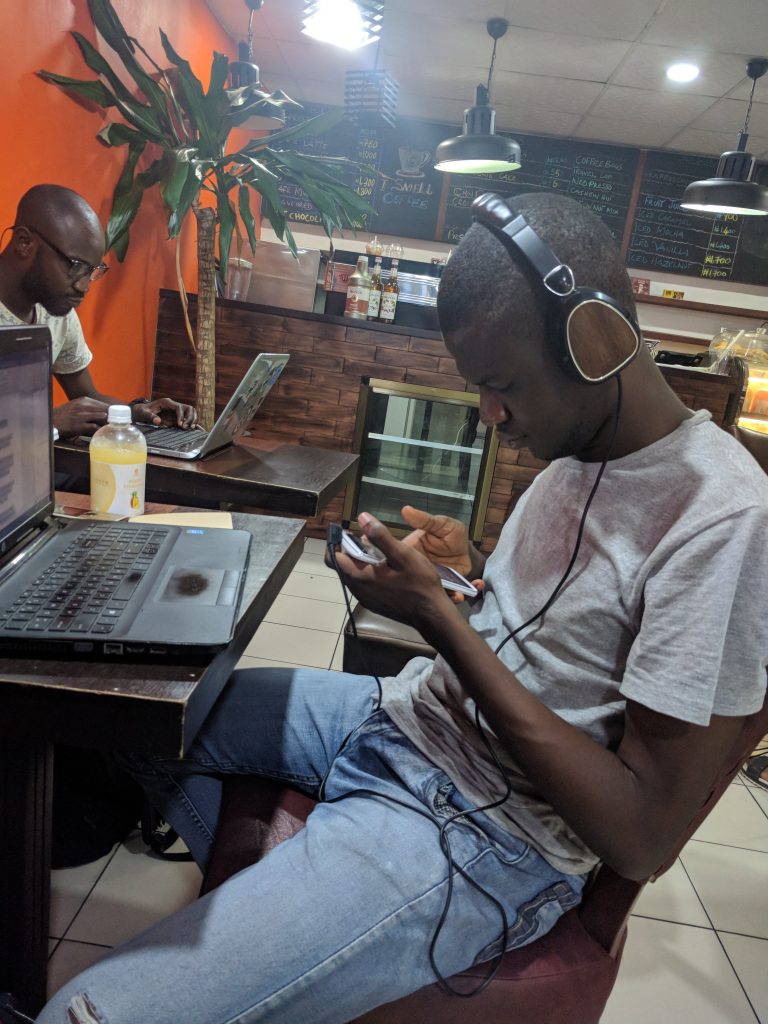Smartphones are Changing the Way we Live
Two days to my 16th birthday, it was an extremely hot day, under the scorching sun. The atmosphere was polluted with smoke, car horns, and various people clamoring, but with all of these, I wasn’t bothered at all. I was too excited to fret, my mom was beside me and we were on our way to getting me my first ever smartphone.
Coming from a fairly middleclass family, it seemed like the obvious thing at that time for me to get a smartphone for myself. Now I can connect to the world through the internet, now I can take pictures of myself and my experiences without needing to own a camera, thousands of songs and videos now at my fingertips, and also having to step into the class of “smartphone kids”. Coming out of the SLOT store that day, my TECNO H5 was the best thing that happened to me at that time.
Before gaining admission into the tertiary institution, I had been told several times by older friends and parents how they loved the library and how it was an important part of their academic success because of the invaluableness of this labyrinth of resources. Being in my penultimate year in school, I can say that I’ve not stepped into the library except for the compulsory trip during the campus tour, and that is also the account of some of the other students leading the department. This is not to diminish the potency or influence of the academic library in the success stories of many library-loving students. Instead it is to show how information flow has revolutionized over the years.

What has now become the source of resources for an average student in the 21st century?
The smartphone. It has literally changed the way we scout for information. It is now second nature for a student to instinctively reach into their pockets and google a topic or an aspect of a topic that seems discombobulated(You can google this one now too). It is now a regular activity to type the entire question of an assignment into a search box to get quick solutions.
Has this solution created a problem in itself? Has it made students lazier? Has it motivated learners to embrace a shortcut mentality? It is well said that all things having advantages are awash with disadvantages, but are the disadvantages outweighing the advantageous effects?
Statistically, students generally utilize their smart devices for leisure purposes (movies, social media, games) 70% of the time rather than for educational purpose (www.kent.edu, 2015).
The psychological principle on which smartphones run is the concept of instant gratification; we are conditioned to repeatedly pull down the notification bar to check out “what’s happening”. There are even cases of young people that got involved in minor domestic accidents from rushing to their phones after getting a notification (Rise of Smartphone Injury as 43% of People Have Walked Into Something, www.dailymail.co.uk, 2015).
Most times, as I narrated my story in the first few sentences of this article, this is the motivation for purchasing a new smart device—the fun, the excitement, the social sharing. Statistically, 55 billion WhatsApp messages are sent every single day, which is tremendously amazing to think about. This is the primary reason why most young people get smartphones, learning and education are usually secondary.

On attempting to write this article, my first first instinct was to research the topic on the internet; that’s a clear example of how our skills and creative essence is fueled by access to smartphones. Today, I can proudly say that, I am a cinematographer, photographer, graphics designer, skateboarder, writer, chess player and much more because I took a trip to the store 4 years ago to get myself a smartphone. 80% of everything I claim to be skillful in today was self-taught: skills acquired with just a smartphone and internet connection. I believe no young person with a smartphone has an excuse to not be skillful at whatever they are passionate about because their solution has been sitting in their pockets all along.
In the world today, we are constantly connected and expected to have a mobile phone with us at All times (www.nbcnews.com, 2017). Compared to 10 years ago, the ownership of smartphones has been increasingly accessible, thanks to innovative companies. What was once referred to as a luxury that only the elite and affluent in the society can have access to has now become very affordable. The world is changing at the rate at which innovation is birthed. A world historically dichotomized by the natural phenomenon of the tectonic shift is now connected together by devices that can fit into our pockets. Smartphones have really transformed our lifestyle.
Written by Saviour Okusenogu




